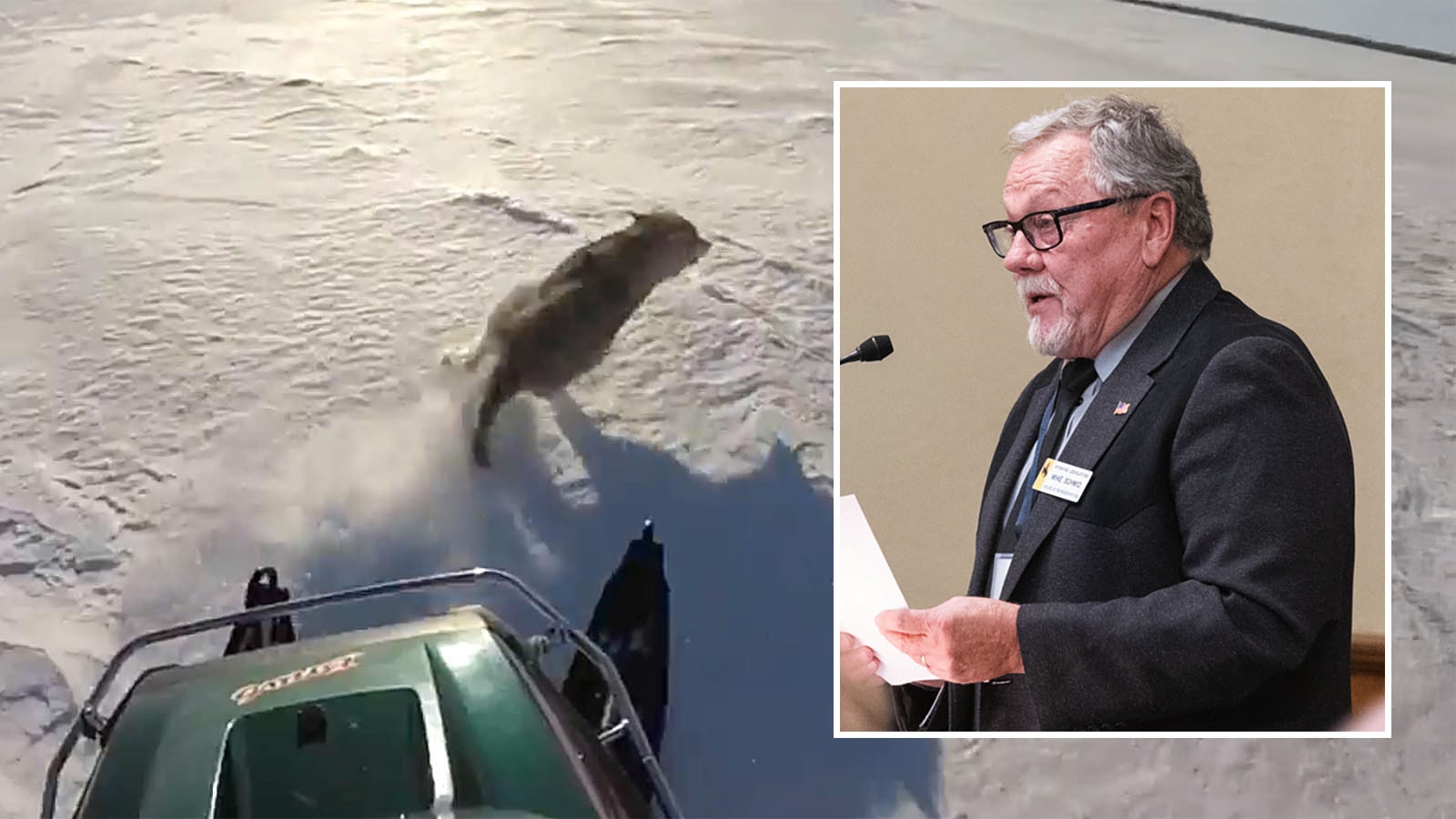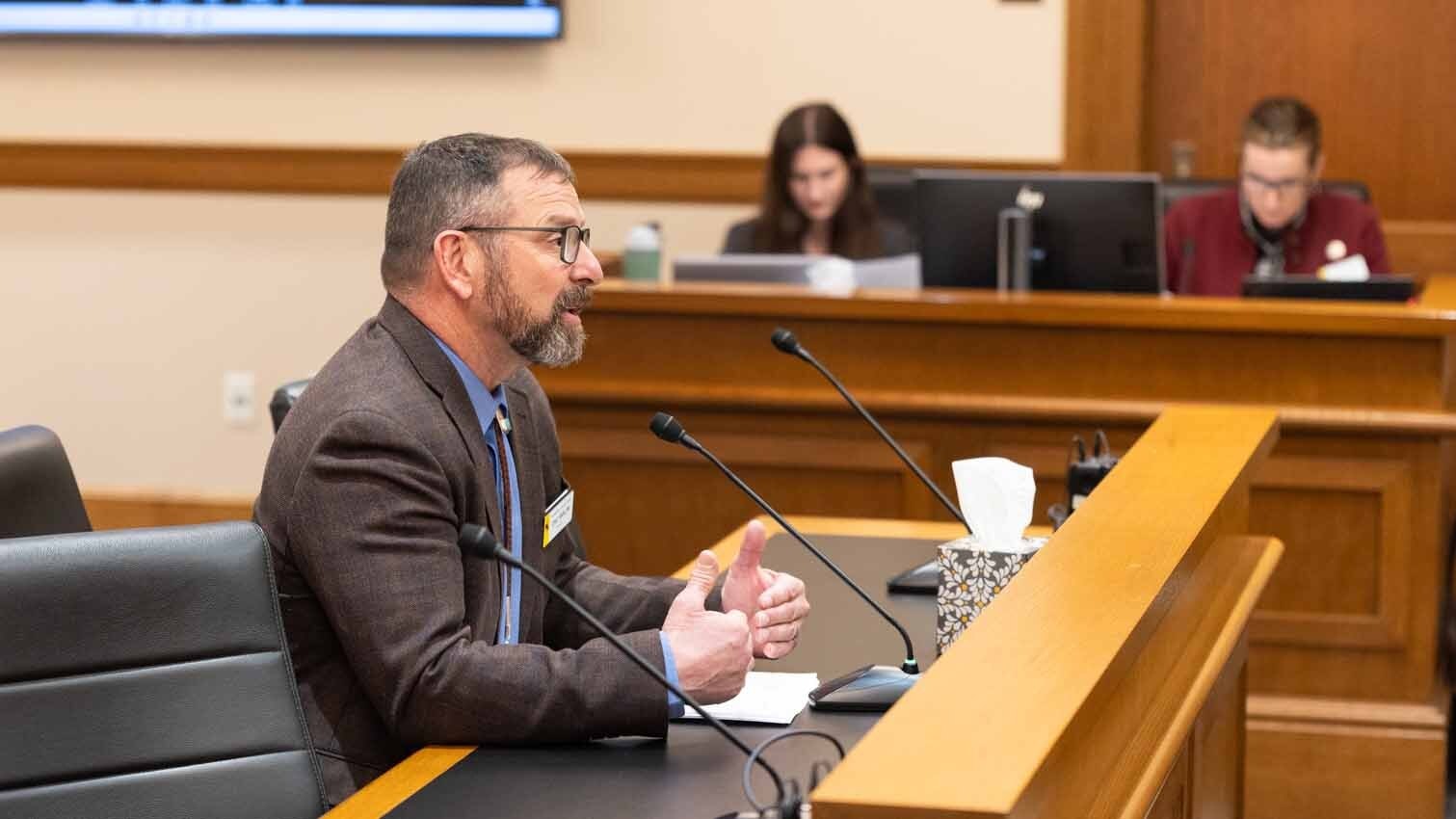The controversial Bureau of Land Management’s Rock Springs Resource Management Plan to manage 3.6 million acres in southwest Wyoming could face major opposition from the new Republican-led Congress and President-elect Donald Trump, who could move to kill it altogether.
A Record of Decision (ROD) on the Management Plan is expected shortly, which would mark the final action taken by President Joe Biden’s administration on the plan.
The Resource Management Plan is a legal document that charts the future management of BLM land in the Rock Springs regional area. This plan outlines what areas can and can’t be used for mining, recreation and travel.
The original Resource Management Plan (RMP) for the Rock Springs field office released in 2023 was met with large opposition for prioritizing conservation efforts over energy production. A revised, final version of the plan released in August struck more of a balance on mining interests and received more support, but still some opposition.
Late last month, Gov. Mark Gordon submitted his consistency review on the RMP, which is Wyoming’s final word on the project before the BLM makes their final changes and signs the ROD. Once the ROD is submitted, no more changes can be made.
In a press release, Gordon said that “a considerable distance” still exists between the management plan and what Wyoming wants.
“Following a careful review, I firmly believe that the BLM’s work here is inconsistent with existing federal and state laws, as well as county policies,” Gordon said. “It appears to be driven by a national political agenda, not the cooperative process between states, counties and the federal government envisioned in the Federal Land Policy Management Act. Moving from an untenable to an unworkable decision does not make their decision any more consistent.”
U.S. Sens. John Barrasso and Cynthia Lummis and Rep. Harriet Hageman expressed similar opposition to the final RMP when it was released in August. Hageman also passed a bill through the House Natural Resources Committee in September that would nullify the RMP proposal.
“The Biden-Harris Rock Springs Resource Management Plan remains unacceptable,” Barrasso said in a statement he released last month. “The people of Wyoming depend on federal lands to make a living, provide for our children and communities, and grow our economy.”
If enacted, Lummis said the RMP would be catastrophic for Wyoming and she plans to block it.
"I have fought to stop this plan every step of the way and will work with President Trump to ensure the RMP is overturned," she said.
The record of decision will be published in the Federal Register and sent to Gordon, who can then communicate to Wyoming’s congressional delegation any issues he may have with it.
“In my opinion, the normal protocol is the delegation would pay very close attention to the wishes of the governor on this,” Former Assistant Secretary of the Interior for Fish, Wildlife and Parks Rob Wallace told Cowboy State Daily.
When asked during a Thursday press conference if he would try to fight the ROD if he doesn’t support it, Gordon was non-committal and said he needs to see it first but said he’s “very concerned” about the RMP as is. He said the BLM has been baiting and switching on the RMP by fulfilling some requests but then taking away other preferences.
“Until I have a record of decision, I don’t have anything to consider at this point,” Gordon said.
What Can Congress Do?
The Congressional Review Act allows Congress to overturn certain federal agency actions, a rare but not unheard of event. The Review Act has been used to overturn a total of 20 rules, most recently three during the 117th Congress of 2021-222.
Once a rule is filed, Congress has 60 days to review it.
By filing a joint resolution of disapproval, Congress can overturn agency rules, and in this case the Rock Springs RMP. That would take support from both the Senate and the House and the president’s approval. That might not be hard to come by with both branches being controlled by Republicans at the start of the new year.
“The deck of cards the governor and the delegation have right now is a very strong hand,” Wallace said.
If a joint resolution of disapproval is filed on the RMP, it would first go to the House Natural Resources and Senate Energy and Natural Resources committees, of which Hageman and Barrasso are members. The resolution would then have to receive majority support in both chambers, like the passage of a traditional bill.
A joint resolution of disapproval would be highly significant as it would entirely scrap the Rock Springs RMP as created.
“They pound a stake into its heart,” Wallace said. “Congress is very restrictive of what they can go back and do.”
Even if the record of decision is filed before the current Congress adjourns, as expected, there’s still a “look back” provision within the Review Act that allows the new Congress a new 60-day period to review a rule and file a resolution of disapproval.
How Would It Affect The Kelly Parcel?
The RMP and the state of Wyoming’s sale of the iconic Kelly Parcel to Grand Teton National Park are now intrinsically connected because of action taken by the Legislature earlier this year to predicate the parcel based on conditions being met in the RMP.
State Rep. Clark Stith, R-Rock Springs, who drafted that stipulation, has said those conditions have been met as a result of the RMP released in August, which Wallace finds “instructive.”
Because of the way that legislation is written, Wallace hopes there won’t be any roadblocks in the sale of the Kelly Parcel even if the ROD ends up being shot down.
“Whatever happens with the ROD, I hope it doesn’t interfere with the Kelly Parcel sale because the amendment that Clark Stith put on the sale has been met, according to him,” Wallace said.
Leo Wolfson can be reached at leo@cowboystatedaily.com.





